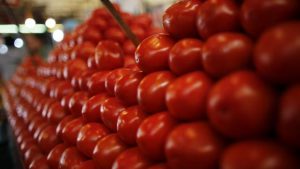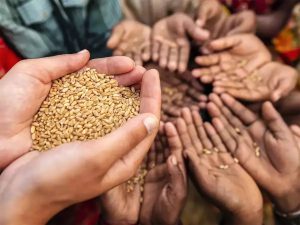Three quick policy measures can be taken to ensure income and credit flows: direct procurement, direct cash transfers to farmers as well as landless labourers and interest subvention through cash transfers and in KCC mode

The COVID-19 infection may have travelled deep into India’s interiors with the exodus of migrant workers. About 5,00,000-6,00,000 people walked ‘barefoot’, out of about 41.4 million who migrate for work, according to the central government’s affidavit to the Supreme Court (SC) on March 31, 2020. The court was also told that almost one-third of them could be carrying the infection.
What it means is that not just infection but the panic of infection has travelled to rural areas at the time of harvesting (rabi), which are carried out over March and April in different parts of the country. Even though agriculture and allied activities, including the operation of mandis and procurement, are exempt from the lockdown, newspaper reports, and anecdotal evidence suggest widespread disruptions in all such activities.
The presence of jobless migrants adds an extra social and economic burden, for they have to be quarantined, fed and provided with healthcare. Since 68.84% of the total or 833 million people (Census 2011) live in rural areas, they need a huge amount of assistance to cope with the crisis.
Three quick policy measures would help in providing immediate relief to farmers, landless agricultural labourers, and migrant workers and also keep them going forward.
I. Restoring food supply chain
The biggest challenge comes from lockdown-induced break in the food supply chain.
Agriculture economist Prof Vikas Rawal of the Jawaharlal Nehru University (JNU) says: “Inability to buy inputs, dispose agriculture produce and breakdown in access to other services like credit could result in complications that would have a far-reaching impact on the whole agriculture sector and rural economy.”
He says restoring normalcy, even in a phased withdrawal of the lockdown being contemplated, would call for assuring and ensuring the safety of people in mandis and other activities connected with the supply chain, such as transportation and its support systems.
The first step, experts agree, would be to get the procurement operation going as quickly as possible (should have begun by now in states which go for early harvest like Madhya Pradesh, Rajasthan, and Gujarat).
Direct procurement from farmers
Prof Ashok Gulati, former chairman of the Commission for Agricultural Costs and Prices (CACP), says the solution is to suspend the APMC-run mandi system and go for direct buying from farmers without charging the market fee.
He says this could be carried out by the Food Corporation of India (FCI) and corporate entities engaged in agri-processing and exports by using various electronic platforms available to them for identifying and scheduling procurement without crowding. Later on the threads can be picked up through the APMC-run mandis.
Prof Sukhwinder Singh of Chandigarh-based Centre for Research in Rural and Industrial Development (CRRID) says procurements must now expand to cover perishable commodities like vegetables and fruits as farmers are forced to destroy their produce since there are no buyers.
All such activities would call for adequate health screening and personal safety equipment like masks.
II. Direct cash transfers to as many as possible
The second important measure involves direct cash transfers to cover not only the farmers but also landless agricultural labourers who migrate seasonally and many of whom have now returned home.
This can be done using several existing schemes.
Expanding PM-Kisan to cover rural landless/migrant workers
The PM-Kisan scheme is a major cash transfer programme launched in 2019, under which every farmer receives Rs 6,000 annually in three installments.
Landless agricultural workers, who are among the poorest of the poor, are not covered under this or any other such scheme. They constitute 55% of the total workforce (Census 2011) and should have the first right on government assistance, more so now that they are the hardest hit.
The relief package of Rs 1.7 lakh crore announced recently says the government would “front-load” the first installment of Rs 2,000 in the first week of April for 87 million farmers.




